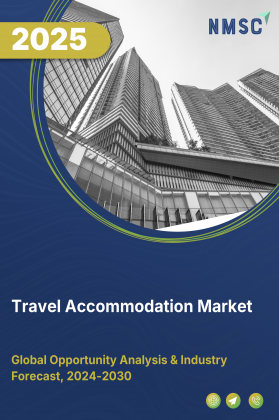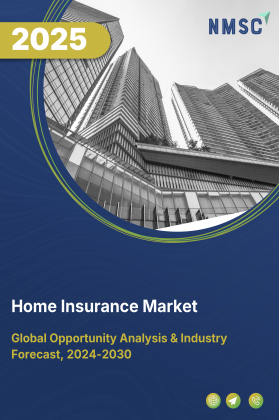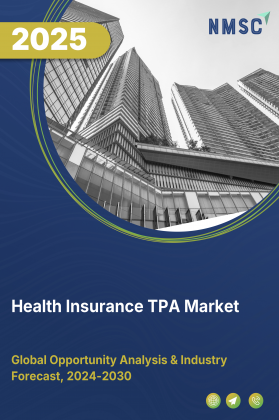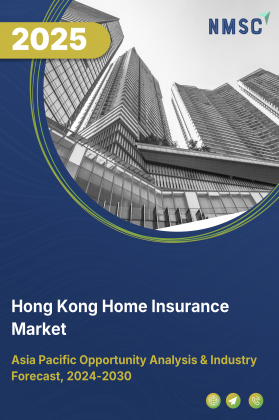
Travel Accommodation Market By Accommodation Type (Hotels, Resorts, Vacation Rentals, and Others), By Purpose of Travel (Leisure travel, Business and Professional Travel, and Others), By Ownership/Management (Chain Operated, Independent, and Others), By Booking Channel (Online Travel Agencies, Brand or Direct Booking Websites, Travel Agents and Tour Operators, and Others) – Global Opportunity Analysis and Industry Forecast 2025-2030.
Industry Overview
The global Travel Accommodation Market size was valued at USD 740.28 billion in 2024, and is expected to be valued at USD 867.60 billion in 2025. The industry is projected to grow, reaching USD 1918.49 billion by 2030, with a CAGR of 17.2% between 2025 and 2030.
The global market is primarily driven by the surge in international tourist arrivals, with over 300 million travelers recorded in Q1 2025 alone, reflecting a strong post-pandemic rebound. Advancements in technology, such as AI-powered personalization, contactless payments, and mobile check-ins, are further enhancing guest experiences and operational efficiency.
Additionally, rising disposable incomes in key markets like the U.S. and China are enabling more spending on leisure travel and premium accommodations. However, the market faces challenges from increasing cybersecurity threats, which can undermine guest trust and tarnish brand reputations if not effectively managed. Despite this, the growing demand for seamless, secure, and user-friendly digital payment solutions presents a significant opportunity for service providers to differentiate themselves and capture a broader customer base.
Rising International Tourist Arrivals Fuel Market Demand for Travel Accommodation
International tourism continued its upward trend in early 2025, with tourist arrivals rising by 5% in the first quarter compared to the same period last year. Approximately 300 million international travellers were recorded between January and March 2025, highlighting sustained recovery and growing consumer confidence in global travel. This increase is driving further momentum in the travel accommodation sector, as providers respond by expanding their inventories, enhancing digital booking experiences, and catering to evolving traveller expectations across different regions and budget segments.
Technology is Driving Market Expansion Through Enhanced Guest Experiences and Smarter Operations
The rapid adoption of digital solutions, such as mobile check ins, AI driven personalization, and contactless payments is transforming both front and back of house operations. According to Hotel Tech Report, 92% of hoteliers report that guests now expect contactless technology, and 81.7% have implemented or plan to implement at least one digital solution introduced during the pandemic (e.g., mobile keys, integrated PMS features). Meanwhile, major brands are investing heavily in real time revenue management systems and AI chatbots to boost RevPAR by up to 10–15% and streamline guest engagement.
Rising Disposable Incomes Boost Leisure Travel Spending
Rising disposable income expands people’s ability to spend on leisure beyond necessities, fueling greater demand for travel accommodations. In 2024, U.S. per capita disposable personal income reached approximately USD 63,589, up from USD 60,944 in 2023, supporting stronger consumer travel budgets and post pandemic leisure spending. In China, nationwide per capita disposable income grew to approx. USD 5,734 in 2024, a 5.3% nominal and 5.1% real increase over 2023’s income, highlighting sustained growth in urban and rural household spending capacity.
Rising Cybersecurity Threats Undermine Guest Trust and Operational Stability
Heightened digital integration brings greater exposure to cyber threats. The AHLA report warns that notable breaches have underlined the hospitality sector’s vulnerability, exposing guest data and harming brand reputations and recommends treating cybersecurity as a core competitive advantage. With guests increasingly discerning about data privacy, any lapse can erode loyalty; thus, providers must invest in robust cloud based security frameworks and continuous threat monitoring to safeguard operations and maintain trust.
Seamless Payment Solutions Offer a Path to Revenue Growth
Innovations in payment technologies, including BNPL, network tokenization, and embedded wallets are poised to redefine booking experiences. Payrails reports that 1 in 5 U.S. travelers now use BNPL at OTAs, while AI powered pricing algorithms can boost RevPAR by 10–15%. Moreover, global hotel revenue reached US $975 billion in 2024, with a projected 6% CAGR through 2029, indicating a lucrative runway for providers who embed frictionless, mobile first payment solutions. By prioritizing seamless checkout and diverse payment methods, accommodations can reduce abandonment rates and unlock new revenue streams.
Market Segmentation and Scope of Study
The travel accommodation market report is divided on the basis of accommodation type, purpose of travel, ownership/management, booking channel, duration of stay, price tier, and region. On the basis of accommodation type, the market is grouped into hotels, resorts, hostels and capsule hotels, vacation rentals, institutional and purpose-built housing, and guesthouses, B&Bs, and inns. On the basis of purpose of travel, the market is categorized into leisure travel, business and professional travel, visiting friends and relatives, educational and institutional travel, and long stay or relocation travel. On the basis of ownership/management, the market is grouped into chain-operated, independent, peer-to-peer, and institutional. On the basis of booking channel, the market is categorized into online travel agencies, brand or direct booking websites, travel agents and tour operators, and government booking portals. On the basis of duration of stay, the market is segmented into short-term stays, medium-term stays, and long-term stays. On the basis of price tier, the market is divided into budget accommodations, mid-range accommodations, and luxury and premium accommodations. Regional breakdown and analysis of each of the aforesaid segments includes regions comprising Asia-Pacific, North America, Europe, and RoW.
Geographical Analysis
North America holds the dominant share in the travel accommodation industry at present and is projected to continue its dominance throughout the forecast period. This is attributed to the growth in tourism that increases the number of travellers, that further boosts demand for various accommodation options. As a result, travel accommodation providers expand their offerings and enhance services to meet diverse customer needs, driving further industry growth. As per the World Travel & Tourism Council 2024, it is forecasting an historic year for Canada’s Travel & Tourism sector this year, with the economic contribution set to reach an all-time high of almost USD 182 billion.
Europe commands a substantial portion of the global travel Accommodation market share and is set to maintain robust expansion over the coming years. This strength is driven by a vigorous rebound in cross border tourism and seamless intra regional travel, which together fuel demand for everything from chic urban hotels to tranquil rural lodgings. To capture this growth, major operators like Accor and IHG are introducing fresh lifestyle concepts and enhancing loyalty programs across both primary capitals and emerging destinations. With travel and tourism slated to contribute nearly USD 2.23 trillion to the EU economy by 2025 equivalent to over one tenth of GDP Europe’s strategic importance in the sector is clear.
The Asia Pacific market is the fastest expanding globally. In mid 2025, OYO teamed up with Yatra to integrate 1,000 new serviced hotels by September, strengthening its presence in key business centers like Delhi NCR, Mumbai and Bengaluru. At the same time, Marriott International’s Asia Pacific (excluding China) division secured a record 109 development agreements in 2024, adding 21,439 rooms to its pipeline and ending the year with over 77,500 rooms planned. Fueled by rapid urbanization and growing corporate travel, the region is projected to maintain double digit growth through 2026, with OYO and Marriott leading the charge.
Moreover, the presence of key players such as Accor S.A, Hilton Worldwide Inc, and others are further driving the innovation and growth of the market through various strategies including product launches thus driving the demand for the market in this region.
For instance, in August 2023, Hilton announced the signing of Hilton the Point Residences and Canopy by Hilton the Point in Abha, Saudi Arabia. Set to open in 2026, the properties will feature 250 rooms, dining options, a fitness center, and event spaces, as part of The Point development. These hotels aim to enhance Saudi Arabia's tourism sector and offer world-class amenities.
Strategic Innovations Adopted by Key Players
Major travel accommodation players are accelerating global expansion through upscale brand launches, service diversification, and strategic partnerships. Key moves include IHG’s luxury and Canadian market entries, Airbnb’s shift beyond lodging, Accor’s Latin American acquisitions, Hilton’s aggressive India push, and Marriott’s record-breaking room signings.
-
In July 2025, IHG signed its first voco resort in Oman (voco Al Mouj Muscat), expanding into luxury leisure with a 5 star beachfront property, diversifying its portfolio and targeting high net worth travelers in the Middle East. In June 2025, IHG’s upscale voco brand made its Canadian debut with three hotel signings—voco Toronto Midtown, voco Calgary Airport, and voco Vancouver Harbourside—marking its entry into Canada’s upscale market.
-
In May 2025, Airbnb expanded beyond lodging with Airbnb Services and Experiences, adding amenities like chefs and local workshops in 260–650 cities.
-
In April 2025, Accor entered exclusive negotiations to acquire 17 Royal Holiday Group management agreements across Mexico, Argentina, Puerto Rico, and the U.S., split between Ennismore all inclusive resorts and Accor PM&E Americas city hotels.
-
In November 2024, Hilton announced plans to quadruple its India pipeline, signing a licensing deal for 150 Spark by Hilton hotels with Embassy Group, its first India first brand launch in APAC shifting focus from China amid sluggish demand.
-
In January 2024, Marriott reported record global signings, adding 127,000 rooms to its pipeline, driven by strong growth in midscale and luxury segments.
Key Benefits
-
The report provides quantitative analysis and estimations of the market from 2025 to 2030, that assists in identifying the prevailing industry opportunities.
-
The study comprises a deep-dive analysis of the current and future travel accommodation market trends to depict prevalent investment pockets in the industry.
-
Information related to key drivers, restraints, and opportunities and their impact on the travel accommodation market growth is provided in the report.
-
Competitive analysis of the players, along with their market share is provided in the report.
-
SWOT analysis and Porters Five Forces model is elaborated in the study.
-
Value chain analysis in the market study provides a clear picture of roles of stakeholders.
Travel Accommodation Market Key Segments
By Accommodation Type
-
Hotels
-
Luxury Hotels
-
Mid-Range Branded Hotels
-
Budget/Economy Hotels
-
Boutique and Lifestyle Hotels
-
-
Resorts
-
Beach resorts
-
Mountain/Spa Resorts
-
All-Inclusive Resorts
-
-
Hostels and Capsule Hotels
-
Dormitory-Style Hostels
-
Pod/Capsule Hotels
-
-
Vacation Rentals
-
Short-Term Home Rentals
-
Serviced Apartments and Apart-Hotels
-
Farm-Stays and Eco-Lodges
-
Glamping and Tented Camps
-
House-Sitting and Couch Surfing
-
-
Institutional and Purpose-Built Housing
-
Student Housing (On-Campus and Off-Campus)
-
Government Staff/Employee Quarters
-
Military and Educational Lodgings
-
-
Guesthouses, B&Bs, and Inns
-
Family-Run Bed and Breakfasts
-
Heritage Guesthouses
-
Homestays
-
By Purpose of Travel
-
Leisure travel
-
Family vacations
-
Solo or Couple trips
-
Cultural or adventure tourism
-
-
Business and Professional Travel
-
Corporate Travel
-
MICE (Meetings, Incentives, Conferences, Exhibitions) Travel
-
Trade Fair/Event Attendance
-
-
Visiting Friends and Relatives
-
Educational and Institutional Travel
-
Students
-
Interns and Researchers
-
-
Long-Stay or Relocation travel
-
Digital Nomads
-
Healthcare/Medical Tourism
-
Relocation for Work or Family Reasons
-
By Ownership/Management
-
Chain-Operated
-
Independent
-
Peer-to-Peer
-
Institutional
By Booking Channel
-
Online Travel Agencies (OTAs)
-
Brand or direct booking websites
-
Travel agents and tour operators
-
Government booking portals
By Duration of Stay
-
Short-Term Stays
-
Medium-Term Stays
-
Long-Term Stays
By Price Tier
-
Budget Accommodations
-
Mid-Range Accommodations
-
2-Star and 3-Star Hotels
-
Serviced Apartments
-
-
Luxury and Premium Accommodations
-
4-Star and 5-Star hotels
-
Resorts and High-End Vacation Rentals
-
Boutique Heritage Hotels
-
By Region
-
North America
-
The U.S
-
Canada
-
Mexico
-
-
Europe
-
The UK
-
Germany
-
France
-
Italy
-
Spain
-
Denmark
-
Netherlands
-
Finland
-
Sweden
-
Norway
-
Russia
-
Rest of Europe
-
-
Asia-Pacific
-
China
-
Japan
-
India
-
South Korea
-
Australia
-
Indonesia
-
Singapore
-
Taiwan
-
Thailand
-
Rest of Asia-Pacific
-
-
Rest of the World
-
Latin America
-
Middle East
-
Africa
-
Key Players
-
Hyatt Hotels Corporation
-
IHG hotel & resorts
-
Emaar Hospitality Group
-
Accor S.A.
-
Awaze Vacation Rentals Ltd
-
OYO Rooms
-
Cygnett Hotels & Resorts
-
Four Seasons Hotels Limited
-
Airbnb, Inc
-
Radisson Hotel Group
-
Best Western International, Inc
-
Shangri-La Hotels and Resorts
-
NH Hotel Group
REPORT SCOPE AND SEGMENTATION:
|
Parameters |
Details |
|
Market Size in 2025 |
USD 867.60 Billion |
|
Revenue Forecast in 2030 |
USD 1918.49 Billion |
|
Growth Rate |
CAGR of 17.2% from 2025 to 2030 |
|
Analysis Period |
2024–2030 |
|
Base Year Considered |
2024 |
|
Forecast Period |
2025–2030 |
|
Market Size Estimation |
Billion (USD) |
|
Growth Factors |
|
|
Countries Covered |
28 |
|
Companies Profiled |
15 |
|
Market Share |
Available for 10 companies |
|
Customization Scope |
Free customization (equivalent to up to 80 working hours of analysts) after purchase. Addition or alteration to country, regional, and segment scope. |
|
Pricing and Purchase Options |
Avail customized purchase options to meet your exact research needs. |

















 Speak to Our Analyst
Speak to Our Analyst

























